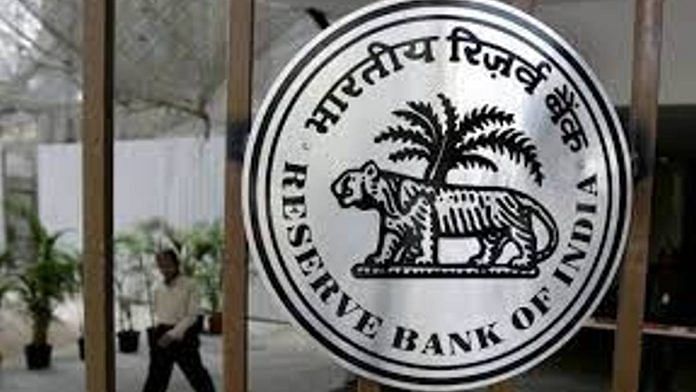New Delhi: The Reserve Bank of India (RBI) has clarified that penal action against fraudsters and wilful defaulters will continue even if banks enter into a compromise agreement with them to recover whatever part of the defaulted or fraud amount that they can.
It further clarified that the recovery of loans would continue even if they are technically written off from the balance sheets of the lenders.
Earlier this month, the central bank had issued a set of guidelines which specified that banks could enter into “compromise settlements” with defaulters that “may entail some sacrifice of the amount due from the borrower on the part of the regulated entities”.
The guidelines attracted a lot of criticism from various quarters, including the Congress, centred around how they could embolden future defaulters and pardon past ones.
However, in an FAQ document issued Tuesday, the RBI said, “The penal measures currently applicable to borrowers classified as fraud or wilful defaulter in terms of the Master Directions on Frauds dated July 1, 2016, and the Master Circular on Wilful Defaulters dated July 1, 2015, respectively, remain unchanged and shall continue to be applicable in cases where the banks enter into compromise settlement with such borrowers.”
The central bank further said that such penal measures include several stipulations. For instance, no additional facilities will be granted by any bank or financial institution to wilful defaulters, and such companies and their promoters are debarred from institutional finance for floating new ventures for a period of five years from the date of removal of their name from the list of wilful defaulters.
In addition, the central bank said, borrowers classified as fraud are debarred from getting bank finance for a period of five years from the date of full payment of the defrauded amount.
From a policy perspective, the RBI argued that allowing such compromise settlements was a positive move because it would allow lenders to recover as much of their dues as possible, without the process being locked up in long legal proceedings.
“The primary regulatory objective is to enable multiple avenues to lenders to recover the money in default without much delay,” the FAQ document stated. “Apart from the time value loss, inordinate delays result in asset value deterioration which hampers ultimate recoveries.”
“Continuing such exposures on the balance-sheets of the lenders without resolution due to legal proceedings would lock lenders’ funds in an unproductive asset, which would not be a desirable position,” it added.
Overall, the central bank’s argument in favour of compromise settlements was that, as long as larger policy concerns are suitably addressed and as long as the perpetrators of “malafide actions” are made to bear the costs of their actions, early recoveries by lenders should be a preferred option, subject to safeguards.
The RBI added that its guidelines on compromise settlements would, in fact, increase transparency in the whole process since it involved the approval of the board of the bank at almost every step.
Also Read: Bank credit has bounced back, but rising interest rates & inflation can be new hurdles
‘Defaulting borrowers not benefited in any manner’
Another concern raised about the RBI circular pertained to the clarification of some rules about technical write-offs of loans, which many took to mean that loans would be waived off and not recovered, leading to a loss to the lenders.
“As defined in the circular, technical write-off refers to cases where the NPAs (non-performing assets) remain outstanding at borrowers’ loan account level, but are derecognised by the lenders only for accounting purposes,” the RBI clarified.
“Such technical write-offs do not entail any waiver of claims against the borrower and thus the lenders’ right to recovery is not undermined in any manner,” it added. “Therefore, the defaulting borrowers are not benefited in any manner and their legal obligation as well as the costs of such defaults for them remain unchanged vis-à-vis the position prior to technical write-offs.”
(Edited by Nida Fatima Siddiqui)
Also Read: RBI ban on 3rd-party loan recovery agents not a fix. It’s like AP’s microfinance ban mistake



